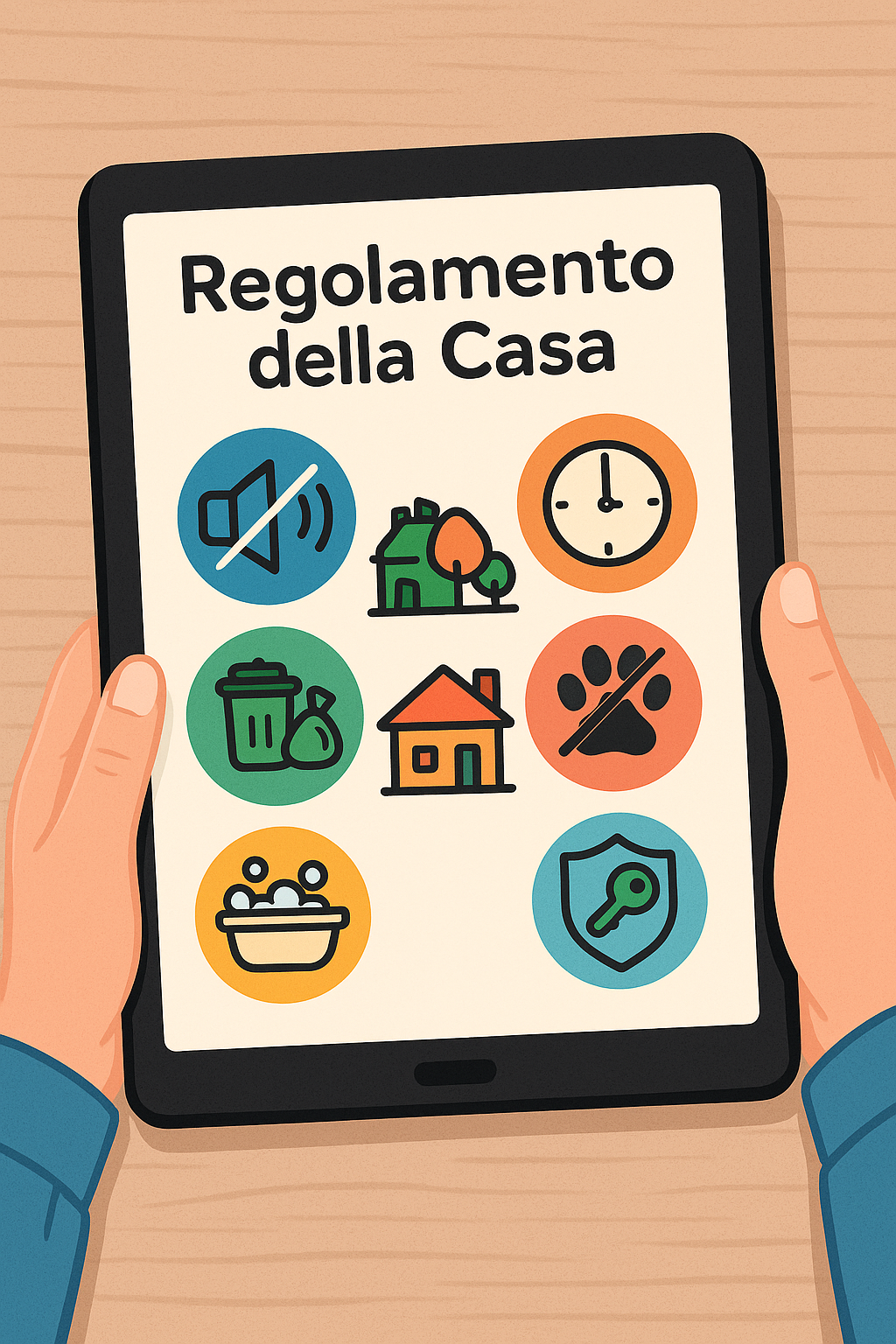The house rules guide is one of the most important tools an accommodation provider can have. It’s not just a list of “don’ts,” but a mutual agreement of respect between you and your guests, setting clear expectations right from the start. A well-crafted document can reduce problems, improve communication, and ensure a smoother stay for everyone.
1. Be clear and straightforward
Use simple, accessible language, even for those who may not be fluent in the language. Avoid overly complex legal terms or vague statements that could be misinterpreted.
2. Organize content by sections
Break the rules into categories: quiet hours, use of common areas, cleanliness, waste disposal, pets, safety, and check-in/check-out procedures. This helps guests quickly find the information they need.
3. Keep a friendly tone
An overly rigid or cold set of rules can make guests feel unwelcome. Maintain firmness, but explain the reasoning behind certain rules in a welcoming way.
4. Provide multiple languages
At a minimum, offer the guide in your local language and English. If you frequently receive guests from a particular country, consider translating it into their language too.
5. Use visual elements
Icons, symbols, or images can communicate faster than a sentence. They are especially useful for safety rules or appliance instructions.
Lastly, review and update your guide regularly, especially if you encounter recurring issues or requests. A well-maintained, up-to-date guide signals professionalism and can significantly reduce misunderstandings during a guest’s stay.
